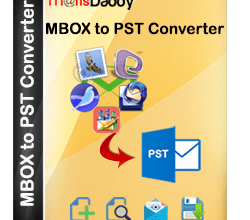Benefits of Financial Automation Software for Small Businesses
Discover the top benefits of financial automation software for small businesses.

Hey there, small business owners! Ever feel like managing your finances is like trying to juggle flaming torches while riding a unicycle? Fear not, because financial automation software might be your new best friend. This fantastic technology is here to streamline your financial tasks, freeing up your time for the things you truly love. With features like automated bookkeeping, expense tracking, and financial reporting, it’s like having a personal finance assistant right at your fingertips. Ready to dive in and discover how this can benefit you? Let’s go!
Streamlining Financial Processes
Running a small business often means wearing many hats, and keeping track of financial processes can be overwhelming. That’s where financial automation software comes in, offering solutions that streamline operations and allow business owners to focus energy on other growth aspects. Let’s dive into how this technology can transform crucial financial tasks.
Automating Invoicing and Billing
Sick of chasing invoices? Financial automation software takes the hassle out of invoicing and billing by automating these processes.
– Timely Invoices: Automated systems can be set to send invoices to clients at specified intervals, ensuring that your billing is always on time and reducing the waiting period for payments.
– Payment Reminders: No more awkward emails or phone calls. Automatic reminders can be dispatched to clients who have upcoming or overdue payments, helping to improve cash flow and enhance client-professional relationships.
Automating these tasks not only cuts down on time spent but also speeds up the payment cycle, keeping your business running smoothly and efficiently.
Simplifying Expense Tracking
Tracking expenses manually can be a tedious and error-prone task. With financial automation software, this becomes a seamless process.
– Automatic Categorization: Expenses can be automatically sorted into categories, assisting in easier tracking and analysis.
– Real-Time Data: Get insights into your spending habits with up-to-the-minute data, allowing you to make informed decisions about your finances.
Effective automation means that you can quickly spot where your money is going and identify potential savings, making expense management a breeze.
Enhancing Payroll Efficiency
Payroll is critical, but it can be time-consuming if done manually. Financial automation software alleviates the burden with remarkable efficiency.
– Automated Calculations: Automatically calculate wages, including taxes and deductions, reducing the risk of costly errors.
– On-Time Payments: Ensure that employees are paid correctly and on time, which boosts morale and keeps the team happy.
With the heavy lifting taken care of, small business owners can dedicate more time to nurturing their teams and expanding their ventures.
Reducing Human Errors
Human errors in financial management can lead to costly mistakes, but financial automation software significantly reduces these mishaps by minimizing manual involvement.
Minimizing Manual Data Entry
Manual data entry is one of the most common sources of errors in financial processes, and it’s also incredibly time-consuming.
– Data Capture: Automated tools can capture and input data directly from sources such as bank statements and invoices, drastically reducing the chance of keying errors.
– Integration: These systems often sync with existing tools and platforms, ensuring smooth data transfer and limiting duplication of efforts.
By cutting down on manual tasks, businesses can reduce inaccuracies and focus on providing better services and products.
Accurate Financial Reporting
Producing financial reports is vital for tracking your business’s health and securing stakeholders’ trust. Automation ensures these reports are accurate and prepared right when you need them.
– Real-Time Reporting: Generate up-to-date financial reports with just a few clicks, providing a clear and accurate picture of your financial standing.
– Customizable Templates: Use customizable templates to pull together reports that meet specific needs and requirements, making communication with investors and partners effortless.
Such accuracy and efficiency can enhance decision-making, leading to more strategic growth initiatives for your business.
Consistent Reconciliation
Reconciling accounts can be a daunting task when tackled manually. Automation simplifies this process, increasing both consistency and reliability.
– Automated Matching: Match transactions effortlessly, keeping your books balanced and highlighting discrepancies for quicker resolution.
– Regular Updates: Automated reconciliation ensures that your financial records are always up to date, providing peace of mind.
With consistent reconciliation, business owners can rest assured that their financial snapshot is always reliable, supporting better financial management decisions.
Embracing financial automation software opens small businesses to a realm of possibilities, from boosting efficiency to enhancing accuracy. This innovative technology paves the way for business growth by allowing owners to focus on strategic paths without getting bogged down by financial administration. With less time spent on tedious tasks and reduced errors, small businesses can position themselves for success in today’s competitive market.
Enhancing Data Security
When it comes to managing finances, security is a top priority for any business, especially smaller ones. Financial automation software plays a crucial role in protecting your business from potential threats and ensuring your financial data remains secure.
Protecting Sensitive Financial Information
Financial automation software is designed with advanced security measures to safeguard sensitive financial information. It utilizes encryption, which scrambles your data into unreadable formats for unauthorized users. This means that even if someone were to intercept your data, they couldn’t understand it unless they had the decryption key. Moreover, many software solutions offer end-to-end encryption, providing extra assurance that your information is protected during transmission and storage.
Controlled User Access
Managing who has access to your financial data is equally essential. Financial automation software often includes features for controlled user access. This means that you can specify who in your organization can view, edit, or manage financial information. By setting up user roles and permissions, you help minimize the risk of internal breaches and ensure that only trusted individuals handle sensitive data.
Additionally, these tools often come with audit trails. This means that every access or change to the data is logged, helping you track who did what and when. This not only adds a layer of security but also facilitates accountability within your team.
Regular Software Updates
Another way financial automation software keeps your data safe is through regular software updates. These updates are crucial as they often contain patches for newly discovered vulnerabilities, helping protect against the latest threats. Automated updates mean you always have the latest security enhancements without needing to manually check or install them. As a small business owner, this feature saves you time and keeps your financial tools fortified against cyber risks.
Improving Financial Decision-Making
Access to accurate and timely financial information is key to making informed business decisions. Financial automation software significantly enhances your ability to make smarter choices by providing you with better access to data and deeper insights.
Real-time Financial Data Access
Gone are the days of waiting for monthly statements to understand your financial position. With financial automation software, you gain access to real-time financial data. This means you can monitor cash flows, track expenses, and review your financial status as it happens. Real-time access allows you to make proactive decisions, addressing issues immediately rather than reacting to outdated information.
Analytical Tools and Insights
Financial automation software typically includes a suite of analytical tools that help transform raw data into meaningful insights. These tools can generate comprehensive reports and visualizations that are easy to understand, allowing you to assess performance, identify trends, and uncover opportunities for growth.
– Customizable Dashboards: Create dashboards that highlight the key metrics vital to your business.
– Interactive Reports: Drill down into data to explore specific areas of interest.
– Performance Tracking: Monitor KPIs to gauge how well your business is meeting its financial goals.
Predictive Financial Analysis
Taking decision-making a step further, predictive financial analysis can be a game-changer for small businesses. Financial automation software uses historical data and statistical algorithms to forecast future financial scenarios. This capability helps you prepare for potential challenges, capitalize on upcoming opportunities, and plan more effectively.
For instance, by predicting future cash flows, you can ensure you have enough working capital to cover expenses or strategically allocate resources to fuel growth initiatives. Predictive analysis provides you with a forward-looking perspective, allowing you to make decisions today that benefit your bottom line tomorrow.
In conclusion, financial automation software offers small businesses a multitude of benefits ranging from enhanced security to improved financial decision-making capabilities. By leveraging these tools, you not only protect your financial data but also empower your business to thrive and grow.
Increasing Cost Efficiency
When it comes to running a small business, every penny counts. That’s why small business owners are always on the lookout for ways to cut costs without sacrificing quality. This is where financial automation software comes in, offering a bundle of benefits that can significantly increase cost efficiency across the board.
Reducing Operational Costs
One major way financial automation software helps is by reducing operational costs. Imagine a world where hours spent on manual data entry are a thing of the past—sounds like a dream, right? This software takes care of tedious tasks like invoice processing and transaction recording, meaning businesses can save on labor costs and allocate resources more wisely. Plus, the likelihood of human error decreases, which can save money on potential mistakes or miscalculations. With fewer errors, businesses experience smoother financial operations, which translates into fewer headaches and extra dollars saved.
Optimizing Resource Allocation
Next up, let’s talk about resource allocation. Financial automation software enhances the way businesses allocate their resources by providing real-time insights into cash flow, expenses, and revenue. These insights allow managers to make informed decisions on where to channel their resources effectively. By understanding what areas need more attention and which are performing well, businesses can confidently optimize their efforts and ensure their resources are being utilized in the best possible way.
Scaling Business Operations
Finally, as your small business grows, scaling operations can become overwhelming. Financial automation software simplifies this process by providing the necessary tools for expansion without the need for additional manual effort. Whether it’s generating reports or handling more transactions, the software seamlessly supports growth, allowing businesses to scale up operations efficiently. This ensures that your business can thrive and grow with minimal hassle, making financial automation software a valuable investment for any small business aiming for success.
Conclusion
In conclusion, financial automation software is a game-changer for small businesses, offering numerous benefits that can lead to increased efficiency and profitability. By automating repetitive tasks, businesses save time and reduce human error. This software also provides real-time financial insights, enabling better decision-making and strategic planning. Plus, with enhanced security features, financial data is kept safe and secure. Ultimately, adopting financial automation tools is a smart move to streamline operations, giving small businesses the edge they need to succeed.





